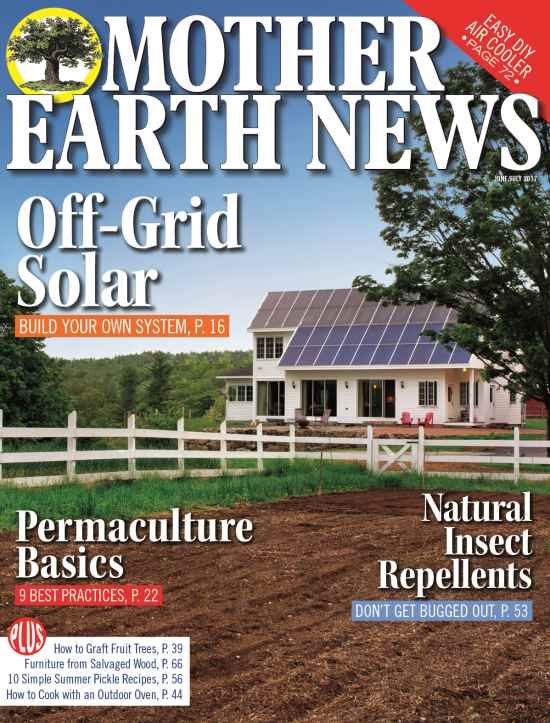Questions to Answer Before Diving in to the Cottage Food Business
Shared From MOTHER EARTH NEWS – Written by: John Ivanko and Lisa Kivirist
Calling all jammers, bakers and canners. You could be part of a growing movement of people starting small food businesses in their homes. No capital needed, just good recipes, enthusiasm and commitment, plus enough know-how to turn ingredients into sought-after treats for your local community. Everything you require is probably already in your home kitchen – and you can start tomorrow.
Thanks to new laws on the books in 42 states, specific food businesses can now be launched from home kitchens. These state laws, often referred to as “cottage food laws,” allow you to sell certain food products to your neighbors and in your community. By certain foods, the laws mean various “non-hazardous” food items, often defined as those that are high-acid, like pickles and preserves, or low-moisture, like breads or cookies.
“After the Great Recession started in 2007, states started implementing cottage food laws to help boost their local economies,” says David Crabill, founder of Forrager.com, an online community where people can ask and answer questions, connect with each other, and add their cottage food operation to the directory. “Today, almost every state has some way to allow home cooks to start a food business with relative ease.”
What’s for sale?
States now make it possible for anyone to earn some income, follow a culinary passion or dream, and have some fun at the same time. From pies to pickles, wedding cakes to granola, preserves to decorated cookies, fledgling food entrepreneurs no longer need to sink thousands of dollars into a commercial kitchen or fork over $50 an hour to rent a licensed facility to turn Aunt Emma’s biscotti recipe into a money-making dream business. We now have the freedom to earn.
Cottage food laws vary a lot by state, so follow the one for your state. That said, there are four key questions answered in your state’s cottage food law:
What products can you sell?
Your state’s legislation will specifically outline the “non-hazardous” food items you can produce under cottage food law, generally grouped as high-acid canned food products (preserves, pickles and salsas) or low-moisture baked goods that don’t require refrigeration. Sometimes the legislation will itemize what you can or can’t sell, but they may also include candy or dry mixes. Focus on what you can legally make, and don’t waste time, energy and money spinning your wheels on what you can’t. Of course, you can always dedicate the time and energy needed to potentially change your state’s law to better meet your aspirations; many laws came about because of such active citizenship.

Lisa and John offer Peppermint Biscotti at their Inn.
Where can you sell your products?
Each cottage food law will dictate where you can sell your product directly to the public. Farmers’ markets and special community events are among the most common venues. Even if your state’s law allows sales at a farmers’ market, that doesn’t mean this venue must allow you to sell there. Some farmers’ markets have bylaws or rules that exclude cottage food enterprises. The states with the greatest sales venue options often include direct orders, home pickup and mail order.
How are you allowed to sell your products?
All cottage food laws permit direct sales to the public. Some of the more restrictive states, however, only allow direct-to-customer sales, meaning no indirect sales to other businesses that could resell your product. But in more than a dozen states, products can be sold through indirect or wholesale channels, to restaurants, specialty food shops or the local food cooperative. However, under no circumstances are you ever “catering.” You’re welcome to produce certain foods in your home kitchen and have them consumed off premises – just don’t slice, plate or otherwise be involved in serving your product.
How much can you sell of your products?
Most states have a gross sales cap on the products you’re selling. This refers to the maximum gross sales your operation can reach per year, which can range from $5,000 to $45,000. Some states, however, have no sales cap at all, but those states may require more in terms of regulatory oversight and inspection.
Once you’ve answered these four questions and understand how the cottage food law operates in your state, you’ll then need to figure out whether what you love to make is worth selling. If people are clamoring for your artisan bread or strawberry jam, that’s an excellent sign. In the end, your ability to sell products is based on creating items your customers want, need, and are willing to purchase at a fair price that they, not you, determine. That’s where marketing comes in.
To continue reading about John Ivanko and Lisa Kivirist’s home based business, check out Create a Home Based Business with Your Baked Goods on MOTHER EARTH NEWS.










